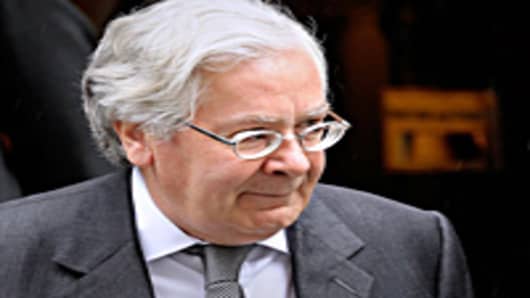Dauntless, Alloway mines this from King's paper:
"Chart 7 shows that the change in countries’ non-performing loan (NPL) ratios between 2007 and 2009 and their current account balance in 2007 are correlated, though of course the direction of causation could go both ways By comparison, the relationship between the change in countries’ NPL ratios and their banks’ capital ratios is insigni?cant… relative to Bretton Woods, today’s IMFS has proven durable, but it has also coexisted, on average, with: slower, more volatile, global growth; more frequent downturns; higher in?ation and in?ation volatility; larger current account imbalances; and more frequent banking crises, currency crises and external defaults. However, to some extent these period-average metrics obscure signi?cant improvements over the current period, with the ‘great moderation’ period post-1990 associated with much better outcomes than those achieved in the 1970s and 1980s. Nevertheless, with the important exception of in?ation, the outcomes achieved during the Bretton Woods period were better than those attained since 1990. While this does not imply causation of course, it does suggest that better outcomes may be possible."
Alloway reaffirms King's observation that correlation does not imply causation, but still observes that "[t]here’s a not-so-subtle yearning for Bretton Woods".
After all: If there weren't, why would King point out the correlated outcomes in the first place?
In fairness to King, the paper is broader than the selection I've quoted might suggest.
For example: "Today's IMFS has become distorted. The major surplus and deficit countries are pursuing economic
strategies that are in direct conflict. And there are some innocent victims. Those emerging market economies which have adopted floating currencies are now suffering from the attempts of other countries to hold down their exchange rates, and are experiencing uncomfortable rates of capital inflows and currency appreciation. So there is more to this issue than a bilateral conflict between China and the United States."
King may not be advocating for a retrograde attempt to roll back the clock to some modified version of the dollar peg. Nonetheless: A modern central banker with such high praise for a fixed rate regime—particularly when stated in terms that are seemingly at the expense of modern flexible rates regimes—is worth remarking in itself.
______________________________________
Questions? Comments? Email us atNetNet@cnbc.com
Follow NetNet on Twitter @ twitter.com/CNBCnetnet
Facebook us @ www.facebook.com/NetNetCNBC


